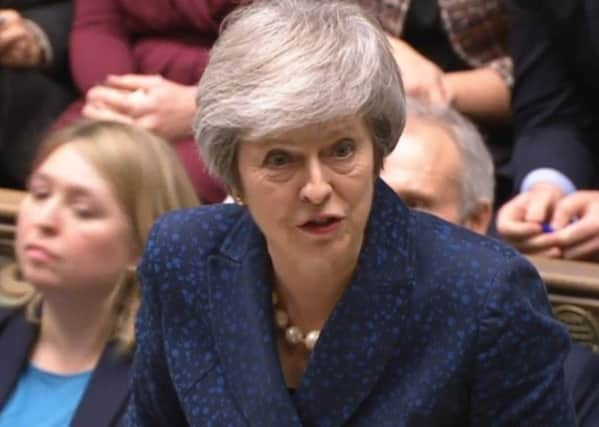Brexit: UK politics in persistent vegetative state '“ Feargal Cochrane


Theresa May won her confidence vote as leader of the Conservative Party by 200 votes to 117. In one sense, a win is a win and the Prime Minister can soldier on and tout her withdrawal agreement around the EU in the hope of getting some concessions that will make it more acceptable to her party.
But she is limping not striding forwards, her feet of clay dragging more obviously from the steps of Downing Street to the lectern outside the building. For a politician for whom humiliation is an almost weekly occurrence, her problems are only increasing and the Confidence vote last night has done nothing to help her move out of her political purgatory.
Advertisement
Hide AdAdvertisement
Hide AdDuring the 2017 General Election when she became aware that things were beginning to unwind for her campaign, she plaintively exclaimed ‘Nothing has Changed – Nothing has Changed’. And the same could be said now. Nothing has changed. The Prime Minister remains the Prime Minister, Brexit still means Brexit – but that also means that there is no coherent policy and there is no viable route forwards.
The current Withdrawal Agreement cannot command support within the Conservative Party, never mind the House of Commons and the minority government that is propped up by the Democratic Unionist Party (DUP). Theresa May effectively threw the DUP under the bus with a commitment to a legally binding backstop on the Irish border in the Withdrawal Agreement. But she was then forced to pull the vote in the face of a humiliating defeat, with the DUP left under the wheels of a bus that had stopped. Hardly surprising in this context that the DUP no longer trusts the government as far as it can throw it.
However, despite the soap opera at Westminster and the disarray in UK Brexit negotiations there are some relatively fixed dimensions to keep in mind.
There will not be a UK deal with the EU without a legally enforceable backstop on Ireland.
The EU will not penalise a state that is staying (Ireland) on behalf of one that is leaving (UK). This is something that UK negotiators do not really seem to understand.
The DUP red line on the Withdrawal Agreement is non-negotiable and unless there is a revised legal text on the backstop, they will not support this under any circumstances when it eventually comes before the House of Commons.
Nothing has Changed – but everything has changed. The choice is now stark. It is boiling down to a choice between the current Withdrawal Agreement, a No Deal car crash, or an extension of Article 50 to allow a second referendum to take place on the Withdrawal Agreement or a vote to remain within the EU.
Theresa May will limp on, flogging a compromise Brexit policy that has no support, to negotiating partners who have little faith in her capacity to deliver it. UK politics is currently in a persistent vegetative state over Brexit, with no capacity to move forwards and no capacity to move backwards.
Advertisement
Hide AdAdvertisement
Hide AdThere is gridlock in government and the only thing moving are the hands on the Brexit clock that are ticking inexorably towards the 29 March 2019 when the UK will, by default, leave the European Union.’
Feargal Cochrane is vice chair of the Political Studies Association and professor of International Conflict Analysis at the University of Kent. He is director of the Conflict Analysis Research Centre and deputy head of the School of Politics and International Relations at Kent. His current research is examining the impact of Brexit on the peace process in Northern Ireland and its devolved institutions.
